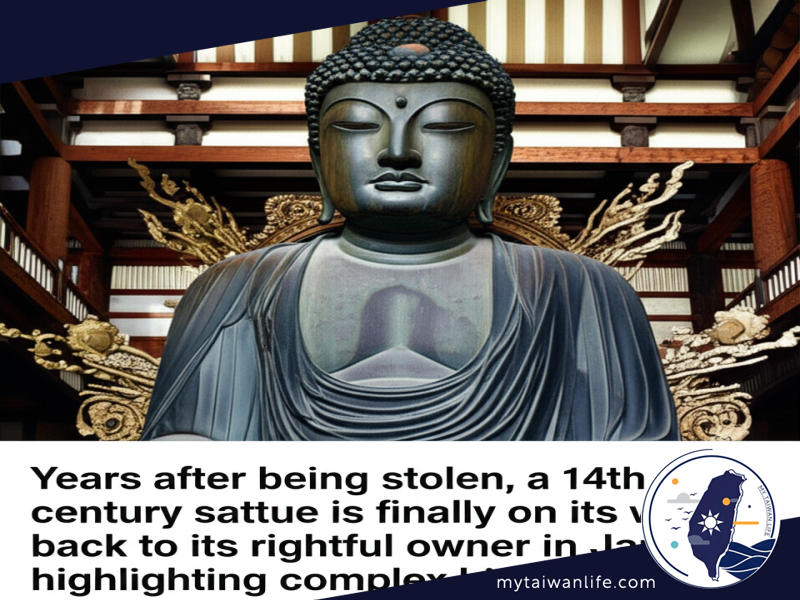Ancient Buddha Statue Returns Home: A Tale of Theft, Claims, and Reconciliation
Years after being stolen, a 14th-century Buddha statue is finally on its way back to its rightful owner in Japan, highlighting complex historical ties.

In a significant gesture of cultural restitution, a South Korean temple has returned a 14th-century Buddha statue to its rightful owner in Japan. The statue, stolen from a Japanese temple in 2012, was handed over on Saturday, marking the culmination of a protracted legal battle.
While the statue was initially recovered by South Korean authorities after being taken by thieves, the Buseoksa Temple in Seosan, located southwest of Seoul, asserted ownership. The temple claimed the statue was looted from them centuries ago by Japanese pirates, adding a layer of historical complexity to the situation.
Representatives from Kannonji, a temple on Japan's Tsushima Island in Nagasaki Prefecture, are scheduled to return the statue to their temple on Monday. The return of the statue is a welcome development for the local community.
Before the handover, the South Korean temple displayed the statue for 100 days. This period highlighted the enduring connection the statue held to the local history.
The legal proceedings surrounding the statue's ownership were also complex. In 2017, the Daejeon District Court initially ordered the government to transfer the statue to Buseoksa Temple, a decision that strained already delicate relations between Japan and South Korea, often challenged by historical disagreements.
However, the tide turned in 2023 when the Daejeon High Court overturned the district court's ruling, a decision that was later upheld by South Korea's Supreme Court, paving the way for the statue's return.
Other Versions
Error: All DeepL API keys exceeded 95% usage.
Error: All DeepL API keys exceeded 95% usage.
Error: All DeepL API keys exceeded 95% usage.
Error: All DeepL API keys exceeded 95% usage.
Error: All DeepL API keys exceeded 95% usage.
Error: All DeepL API keys exceeded 95% usage.
Bumalik sa Tahanan ang Sinaunang Estatuwa ni Buddha: Isang Kuwento ng Pagnanakaw, Pag-angkin, at Pagkakasundo
Error: All DeepL API keys exceeded 95% usage.
พระพุทธรูปโบราณคืนสู่มาตุภูมิ: เรื่องราวการโจรกรรม ข้อกล่าวอ้าง และการคืนดี
Tượng Phật cổ trở về cố hương: Câu chuyện về trộm cắp, tranh chấp và hòa giải

